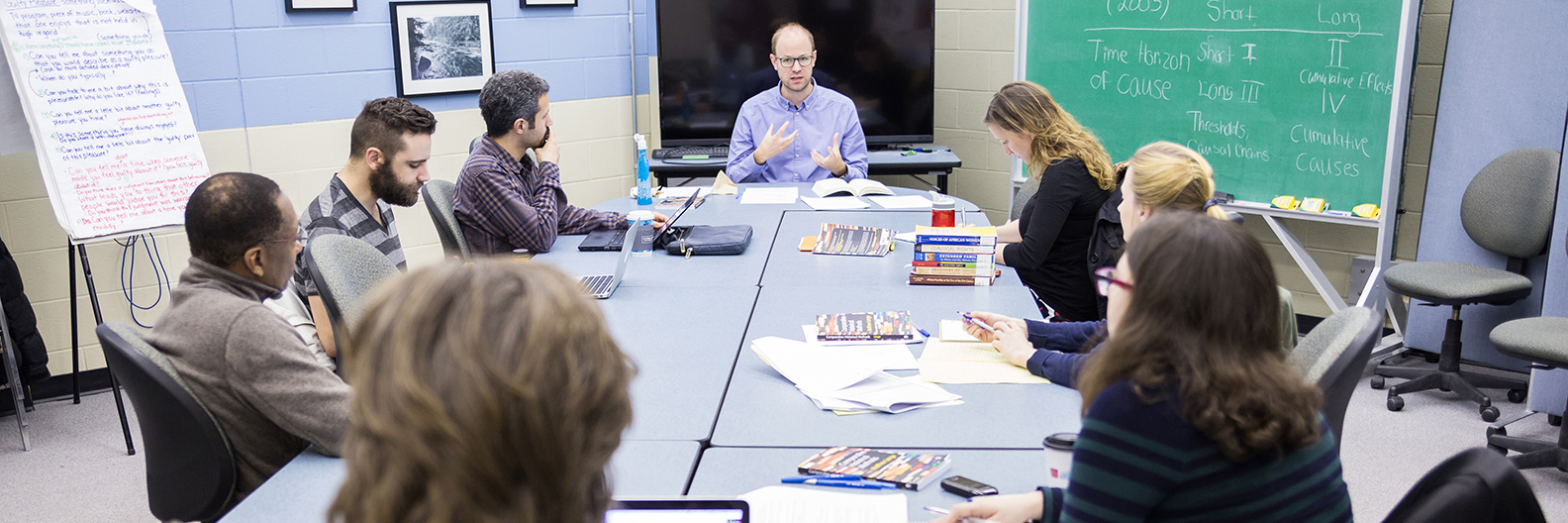Launched by the York Capstone Network, the Project Commons makes it possible for faculty members to easily infuse their courses with interdisciplinary projects that are already linked to on- and off-campus partners.
By Elaine Smith, special contributor
If you’re looking to add an experiential education (EE) component to any of your courses, look no further than the Project Commons, York University’s one-stop shop for “real world” projects that can be integrated into any York classroom.
“The Project Commons makes it possible for faculty members to easily infuse their courses with interdisciplinary projects that are already linked to on- and off-campus partners,” said Danielle Robinson, an associate professor of dance in the School of the Arts, Media, Performance & Design (AMPD).

The Project Commons was launched by the York Capstone Network to provide students across campus with challenging, real-world projects that allow them to apply the knowledge and skills they have acquired during their university careers. Robinson and Franz Newland, an associate professor at the Lassonde School of Engineering, co-founded the network.
With assistance from staff in the YU Experience Hub and Lassonde, they have made connections with a wide assortment of organizations, businesses, and even cities and schools that are eager to work together with students in solving complex problems. Many of these projects – which are directly tied to United Nations Sustainable Development Goals (UN SDGs) – have been taken up by capstone courses, but they are available to faculty for use in any of their classes.
“For faculty members, it’s plug-and-play experiential education,” said Robinson. “We have done the legwork of finding partners and projects that are already connected to UN SDGs. There are so many ways the projects can be used: as course assignments for a whole class, as team or individual projects, as year-long classroom activities.”

Carolyn Steele, who teaches in the Department of Humanities and is the career development co-ordinator in Career Education & Development, says Project Commons’ offerings are “invaluable.” Last year, her students in the humanities community-focused experiential education course Doing Culture chose to use five of the available curated projects. One project, for example, was done in conjunction with African Community Services of Peel and explored ways to engage Black communities by organizing and running a series of community conversations.
“The projects are posed as a question and students are invited to respond to part of it based on their skill sets and interests,” Steele said. “The projects can, therefore, play out in many different ways.
“When the students take on one of these projects, they meet with the partner, decide on the direction and deliverables they wish to take, and forge ahead. They own the process, and the skills and knowledge they acquired throughout their degrees are put forth in a new context. Many had no idea they could do these things, and they see that all their learning really matters.”
Michaela Hynie, a professor in the Department of Psychology, taught an honours thesis course option for community-based research. A group of her students worked with a Project Commons organization, the Markham Arts Council, to evaluate a seniors’ dance program – collecting data, making observations and providing the council with their findings. Each student was able to use this collaborative project experience as the basis of their individualized honours thesis.
“It was helpful to have this resource available,” said Hynie. “It aligned nicely with the course and the students benefited. They were able to apply their research skills in the real world, not just in an academic setting.”
“These efforts help organizations, too, giving them tools and ways of thinking about the impact of their work along with the data.”
Jeffrey Harris, an assistant professor in the teaching stream at the Lassonde School of Engineering, has accessed several of the opportunities offered by the Project Commons while working with the YU Experience Hub to source project experiences for students in his third-year class, Mechanical Engineering: Professionalism and Society.
“I’ve made the course project-focused so the students must work on a project with some kind of societal/social implication,” Harris said. “One of my goals is to get engineering students to think about how they can make contributions to the world and also develop empathy and communications skills.”
The Project Commons comes in very handy, said Harris, because “over time, I’ve learned that students need authentic projects to work on.”
Last year, his students worked with: startup YU Ride, using a commuting lens to consider how to reduce the University’s carbon footprint; Peel Community Climate Council, to determine ways that food waste can be reduced; and MaRS, to explore how laneway spaces in Toronto can be utilized better.
“It would be a huge effort to do the networking required to curate these partnerships year after year,” he said. “I’ll continue to use this resource. In fact, I’m thinking about how to engage with partners for a 500-person first-year class, because when students work on a project beyond the walls of the institution, it resonates a lot more.
“Project Commons makes it a lot easier to add experiential education to our existing courses.”
Steele says the Project Commons is “a phenomenal resource.”
“In many areas, the pressure to create projects fall on the professors, which means making connections; it can be daunting and time consuming. But you can take one of these projects, think about how it makes sense in your course and determine how it could meet the learning objectives of the course. There are more than 70 projects just sitting there waiting to be used.”
Faculty across York’s campuses are invited to explore the EE options that Project Commons provides.


